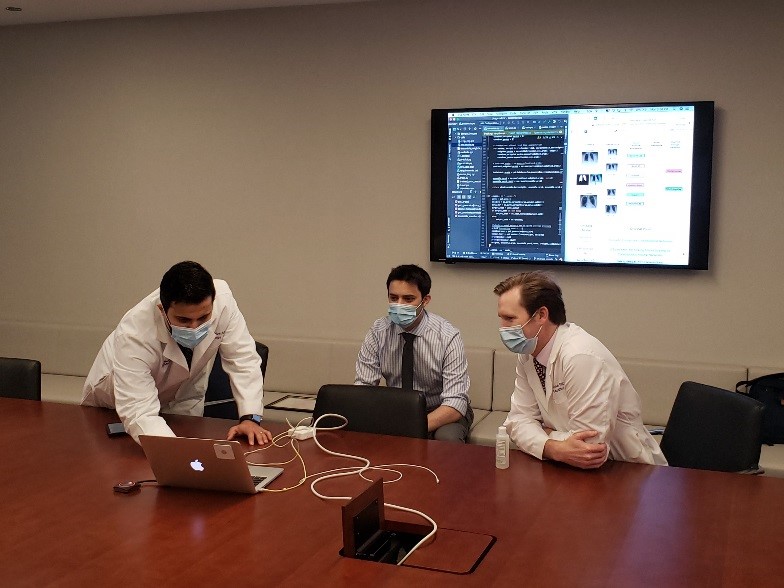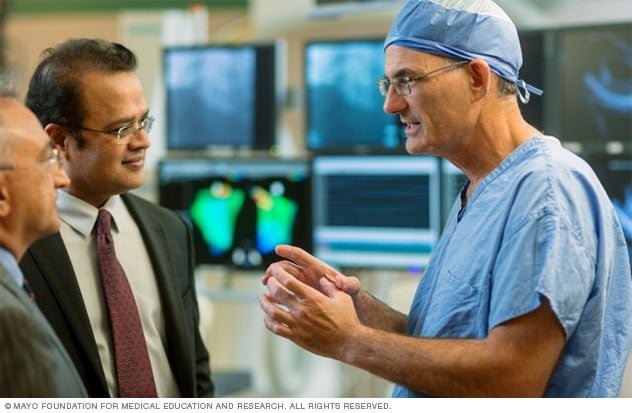Using artificial intelligence (AI) in cardiovascular medicine allows for more accurate identification of coronary atherosclerotic plaques and analysis of echocardiographic images. AI can assist in automatic measurement of chamber size and assessment of left ventricular function.
The application of AI in cardiovascular imaging modalities such as echocardiography, nuclear cardiac imaging, and cardiovascular computed tomography is a significant advancement for recognition, diagnostics, protocol automation, and quality control. Additionally, AI has potential uses in detecting heart disease, enhancing diagnostic capabilities, and treating strokes faster.
AI brings hope for the future in terms of accurately predicting cardiovascular outcomes, non-invasive diagnosis of coronary artery disease, and detection of malignant conditions. The primary use of AI in cardiovascular medicine is to improve accuracy and efficiency in diagnosis and treatment.
Applications Of Artificial Intelligence In Cardiovascular Medicine
Artificial Intelligence (AI) has become a game-changer in various fields, and cardiovascular medicine is no exception. The applications of AI in cardiovascular medicine have revolutionized the way we diagnose and treat heart diseases. In this blog post, we will explore two key applications of AI in cardiovascular medicine: Identification of Coronary Atherosclerotic Plaques and Analysis of Echocardiographic Images.
Identification Of Coronary Atherosclerotic Plaques
Coronary atherosclerotic plaques are a common cause of heart attacks and other cardiovascular diseases. Traditionally, the identification of these plaques is done through invasive procedures such as angiography. However, with the advent of AI, we can now accurately identify coronary atherosclerotic plaques without invasive procedures.
Using deep learning algorithms, AI systems can analyze large volumes of medical images, including angiograms and CT scans, to identify and classify different types of plaques. This not only saves time but also reduces the risk associated with invasive procedures. AI algorithms can detect even the smallest plaques that may be missed by human clinicians, leading to early detection and timely intervention.
Analysis Of Echocardiographic Images
Echocardiography plays a crucial role in diagnosing and monitoring cardiovascular diseases. However, the interpretation of echocardiographic images requires expertise and is prone to subjective errors. AI can address these challenges by providing automated analysis of echocardiographic images.
AI algorithms can automatically measure the size of each chamber of the heart and assess the left ventricular function, providing quantitative data that can aid in accurate diagnosis and monitoring. These algorithms can also detect abnormalities such as wall motion abnormalities and valve dysfunction, allowing for early detection and intervention.
Moreover, AI can assist in the interpretation of stress echocardiography images to evaluate the functional capacity of the heart during exercise. By analyzing changes in the heart’s contractility and blood flow under stress, AI algorithms can help in the diagnosis and management of coronary artery disease.
In conclusion, the applications of AI in cardiovascular medicine, such as the identification of coronary atherosclerotic plaques and analysis of echocardiographic images, have revolutionized the field. These AI-powered technologies enable early detection of cardiovascular diseases, accurate diagnosis, and personalized treatment plans, ultimately leading to improved patient outcomes.
Advances In Artificial Intelligence In Cardiovascular Imaging
Artificial Intelligence (AI) has made significant advances in the field of cardiovascular medicine, particularly in the realm of cardiovascular imaging. With the application of AI, recognition, diagnostics, protocol automation, and quality control for the analysis of cardiovascular imaging modalities have been revolutionized. From echocardiography to nuclear cardiac imaging, cardiovascular computed tomography to cardiovascular magnetic resonance imaging, AI has contributed to more accurate and efficient analysis and interpretation of these imaging modalities.
Recognition And Diagnostics
One area in which AI has made great strides is in the recognition and diagnostics of cardiovascular conditions. Through deep learning algorithms, AI can identify coronary atherosclerotic plaques with greater accuracy than clinicians. This ability to detect and analyze cardiovascular lesions can aid in early diagnosis and timely intervention, leading to improved patient outcomes. Additionally, AI can be employed to analyze echocardiographic images, automating the measurement of chamber sizes and assessing left ventricular function. These advancements enable healthcare professionals to make more accurate and efficient diagnoses, resulting in better patient care.
Protocol Automation
Another key aspect of AI in cardiovascular imaging is protocol automation. AI algorithms can automate the process of image acquisition, analysis, and interpretation, streamlining the workflow for healthcare providers. This automation not only saves time but also ensures consistency and standardization in image protocols. By following predefined algorithms, AI can help reduce inter-operator variability and improve the overall quality of cardiovascular imaging. Moreover, protocol automation facilitates the integration of AI into clinical practice, making it a valuable tool for healthcare professionals.
Quality Control
Ensuring high-quality imaging is essential for accurate diagnosis and effective treatment planning in cardiovascular medicine. AI plays a crucial role in quality control by providing automated image analysis and assessment. With AI algorithms, healthcare providers can detect and flag images with artifacts, inadequate quality, or potential errors in image acquisition. This enables clinicians to take the necessary steps to address these issues promptly, leading to improved image quality and more reliable results. The incorporation of AI in quality control processes helps optimize the accuracy and reliability of cardiovascular imaging, enhancing patient care.
Overall, the advances in AI in cardiovascular imaging have transformed the field by improving recognition and diagnostics, automating protocols, and ensuring quality control. These AI-driven advancements have the potential to revolutionize cardiovascular medicine, enabling healthcare professionals to provide more accurate and efficient diagnoses, streamline workflows, and enhance patient care.
Role Of Artificial Intelligence In Cardiology
Artificial Intelligence (AI) is playing a significant role in cardiology by improving the accuracy of identifying coronary plaques and analyzing echocardiographic images. It allows for faster stroke treatment and enhances diagnostic radiology capabilities, offering hope for the future in cardiovascular medicine.
Prediction Of Cardiac Arrhythmias
Artificial Intelligence (AI) has revolutionized the field of cardiovascular medicine with its ability to predict cardiac arrhythmias. AI algorithms can analyze vast amounts of patient data, including electrocardiograms (ECGs), to identify patterns that are indicative of potential arrhythmias. This predictive capability enables doctors to intervene early and prevent serious heart conditions.
By using deep learning algorithms, AI can spot subtle abnormalities in the ECG readings that might be missed by human practitioners. These algorithms can identify specific ECG patterns associated with different types of arrhythmias, such as atrial fibrillation or ventricular tachycardia. This advanced technology allows for more accurate diagnoses, giving patients a better chance of receiving appropriate treatment.
Diagnosis And Treatment Of Cardiovascular Diseases
In addition to predicting arrhythmias, AI also plays a crucial role in the diagnosis and treatment of cardiovascular diseases. AI algorithms can analyze various medical imaging modalities, such as echocardiography, nuclear cardiac imaging, cardiovascular computed tomography, and cardiovascular magnetic resonance imaging, to provide accurate diagnoses and treatment recommendations.
For instance, AI can automatically analyze echocardiographic images and measure the size of each chamber, as well as assess left ventricular function. This not only reduces the workload for physicians but also ensures more precise measurements. AI can also analyze coronary angiograms to detect and classify coronary artery disease.
Furthermore, AI has the potential to assist in treatment planning. By analyzing patient data, including medical history, lab results, and imaging scans, AI algorithms can provide insights into the best course of action for individual patients. This personalized approach can improve outcomes and enhance patient care.
Conclusion
Artificial Intelligence has significantly transformed the landscape of cardiovascular medicine. Its ability to predict cardiac arrhythmias and aid in the diagnosis and treatment of cardiovascular diseases has opened up new possibilities for healthcare professionals. By leveraging AI technology, doctors can provide more accurate and personalized care, leading to improved patient outcomes and a brighter future for cardiology.

Credit: www.medicine.northwestern.edu
Frequently Asked Questions On Artificial Intelligence (ai) In Cardiovascular Medicine
What Are The Applications Of Artificial Intelligence In Cardiovascular Medicine?
Artificial intelligence (AI) in cardiovascular medicine has several applications. It can accurately identify coronary atherosclerotic plaques and analyze echocardiographic images. AI also helps in diagnosing heart diseases, treating strokes faster, and enhancing diagnostic radiology capabilities.
How Artificial Intelligence Advances In The World Of Cardiovascular Imaging?
Artificial intelligence advances in cardiovascular imaging by improving recognition, diagnostics, protocol automation, and quality control. AI can accurately identify coronary atherosclerotic plaques and analyze echocardiographic images. It enhances the analysis of various imaging modalities like echocardiography, nuclear cardiac imaging, and cardiovascular magnetic resonance imaging.
This technology brings major advancements in cardiovascular medicine.
What Does Ai Mean In Cardiology?
AI in cardiology refers to the use of artificial intelligence technology to improve cardiovascular medicine. It can accurately identify coronary plaques and analyze echocardiographic images, aiding in diagnosis and assessment. AI advancements in cardiovascular imaging include recognition, diagnostics, automation, and quality control.
AI has the potential to enhance disease detection and treatment outcomes in cardiology.
How Ai Can Be Used In Medical?
AI can be used in medicine for various purposes such as identifying coronary plaques accurately, analyzing echocardiographic images, and improving diagnostic radiology capabilities. It helps uncover insights from medical data to enhance health outcomes and patient experiences. AI also aids in predicting cardiovascular outcomes and diagnosing coronary artery disease.
Mayo Clinic and other institutions have applied AI techniques for early detection of heart disease. In the near future, AI may surpass clinicians’ accuracy in identifying coronary plaques.
Conclusion
By harnessing the power of artificial intelligence (AI), cardiovascular medicine is poised for significant advancements. AI has the potential to accurately identify coronary atherosclerotic plaques, surpassing the capabilities of clinicians. Moreover, it can analyze echocardiographic images, automatically measuring chamber sizes and assessing left ventricular function.
The integration of AI in cardiovascular imaging modalities such as echocardiography and cardiac imaging promises to revolutionize diagnostics and protocol automation. With AI’s predictive capabilities and non-invasive diagnostic potential, the future of cardiology holds great promise for improved patient outcomes.





